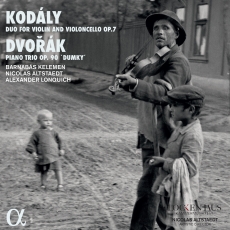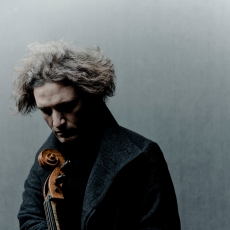Barnabás Kelemen, Nicolas Altstaedt & Alexander Lonquich - Kodály: Duo for Violin and Violoncello, Op. 7 - Dvořák: Piano Trio, Op. 90 "Dumky" - BBC Music Magazine
Dvořák’s six Dumkas which constitute his Piano Trio No. 4 comprise arguably his most original contribution to chamber music. They were the centrepiece of a tour of Bohemian and Moravian concert societies in 1892 intended as a farewell before Dvořák left for New York to become director of the National Conservatory of Music. Abandoning the Classical-Romantic sophistication of his chamber works from the 1880s, the Dumky was intended for a broad audience, as Dvořák put it, made up of the ‘high and low’. The result is music of astonishing directness crafted from the simplest of musical ideas. Although all six movements are made up of alternations of fast and slow sections, they create a persuasive, richly expressive whole.
This performance by a trio comprising Barnabás Kelemen, Nicolas Altstaedt and Alexander Lonquich is undoubtedly compelling. While every phrase is carefully considered, each one is communicated with passion. The faster sections have an exultant quality without ever becoming crude romps. Everywhere there is a wealth of fascinating detail, but the radiant third Dumka is outstanding with an almost vocal quality, and the finale has enormous cumulative power (they also include a much less effective, early version of Dumka No. 3).
Kodály’s impassioned Duo for violin and cello is a good fit with Dvořák’s Dumky in both passion and directness of address. The trio’s performances have a similarly arresting approach which at every turn reveals subtle detail. Some may find the players’ approach a little too intense, but for wholehearted commitment these performances are outstanding.


